By Rick VanSickle
It’s another stinkin’ hot day in Niagara and Paul Speck is running around collecting bottles of this and that to pour over a long lunch on the new patio.

It’s not hard to spot the Henry of Pelham Estate Winery president and CEO. He’s always the guy with the loudest shirt (see above), on this day a multi-coloured Bayou Wear Hawaiian-style masterpiece honouring the 1970 New Orleans Jazz Festival. I did not ask him if he was there in 1970 (he would have been about three years old) but do know Speck loves his music. And sports. And wine. And when I say wine, I mean he loves selling wine, in particular, HIS wine.. That’s his raison d’être for getting out of bed every morning.
Paul Speck is good at it, and it’s born of necessity from an early age when most kids were still trying to figure out what to do with their lives. Paul Speck, now 57, and his brothers Matt, 53, and Dan, 49, were put to work at the family vineyard on the Short Hills Bench by their dad Paul Sr. and mom Bobbi. They worked hard hand-planting Riesling and Chardonnay vines with nothing but shovels. At the time, Paul was 17, Matthew was 14 and Daniel was 10 (see the then and now photo of the brothers below). The back-breaking work continued over several summers and too many weekends to count.
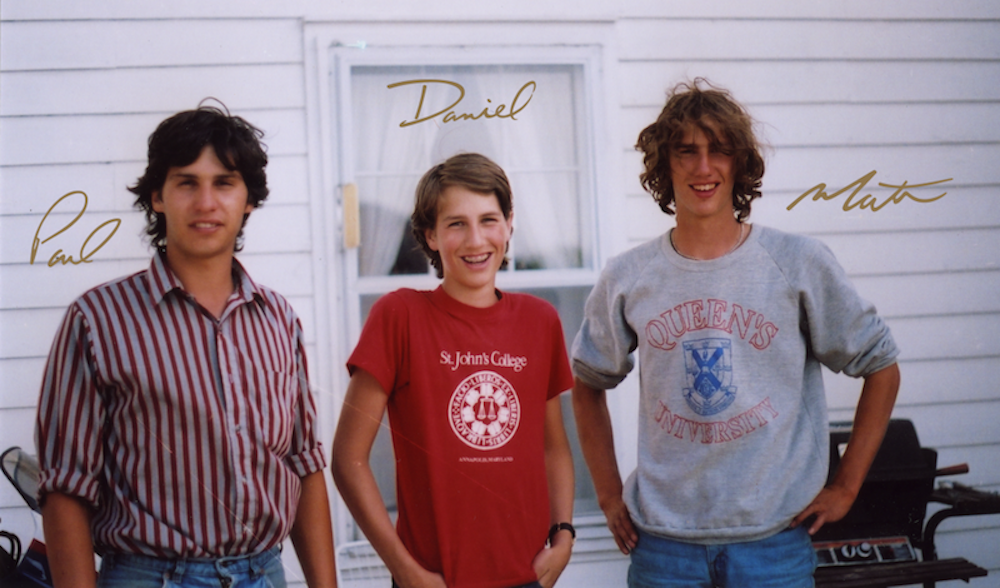
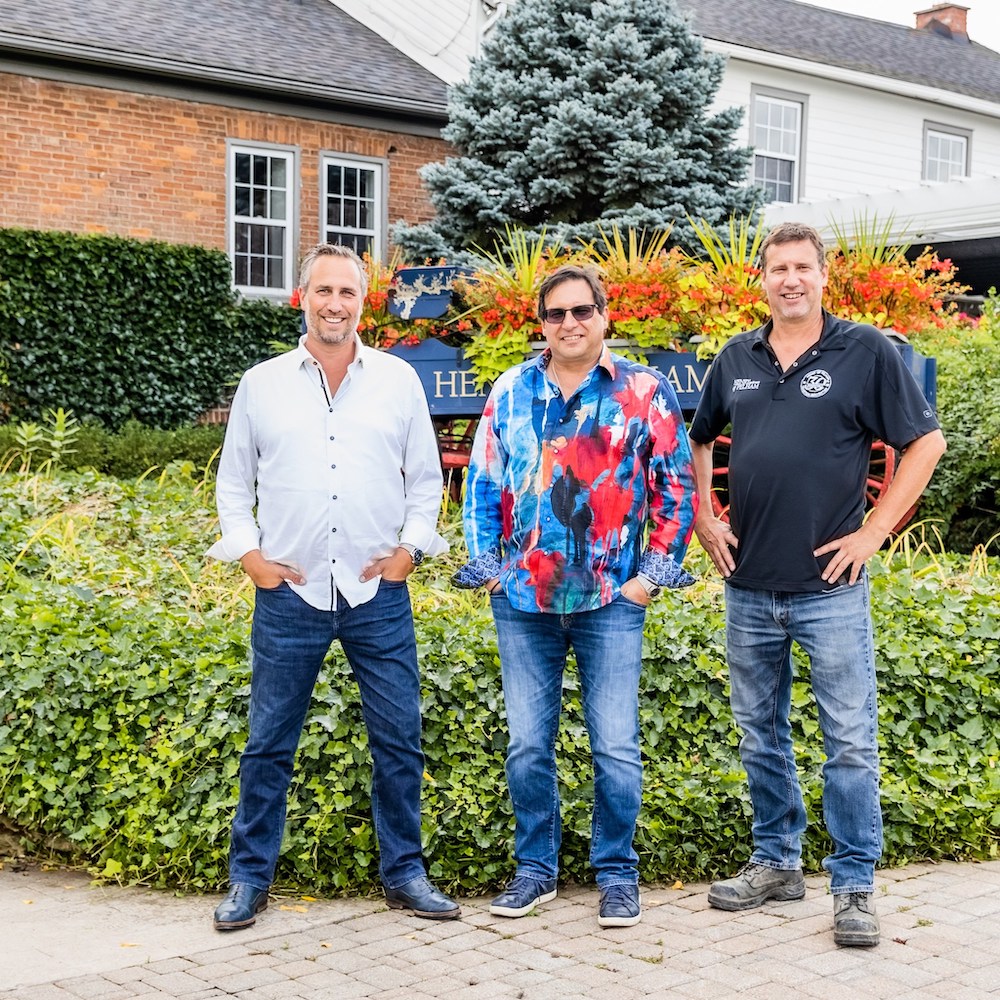
They spent their summers at Henry of Pelham helping their dad and mom plant vines and other vineyard tasks when the 80-acre property across the street from the present-day winery on the Short Hills Bench was purchased 41 years ago. Vineyard holdings now total 300 acres on the Short Hills Bench.
None of the boys, all with impressive educations, ever expected to make it a career in the family wine business. In fact, Paul Speck had his mind set on becoming a lawyer until the unexpected happened. Their father passed away in 1993, and the three young Speck brothers officially became the owners of Henry of Pelham.
Paul Speck told Wines in Niagara in 2018 that “I wasn’t totally thrilled to be here. We had huge debts to pay. It was out of a sense of duty … it just had to be done.”
The three brothers rented an apartment in Port Dalhousie in St. Catharines and began the task of building a winery that was mired in debt from sources that charged, shall we say, interest rates far above what traditional banks charged and that wanted nothing to do with wineries in Niagara at the time because of the uncertainty of VQA and free trade but “we had to get from under all that debt,” Paul said.
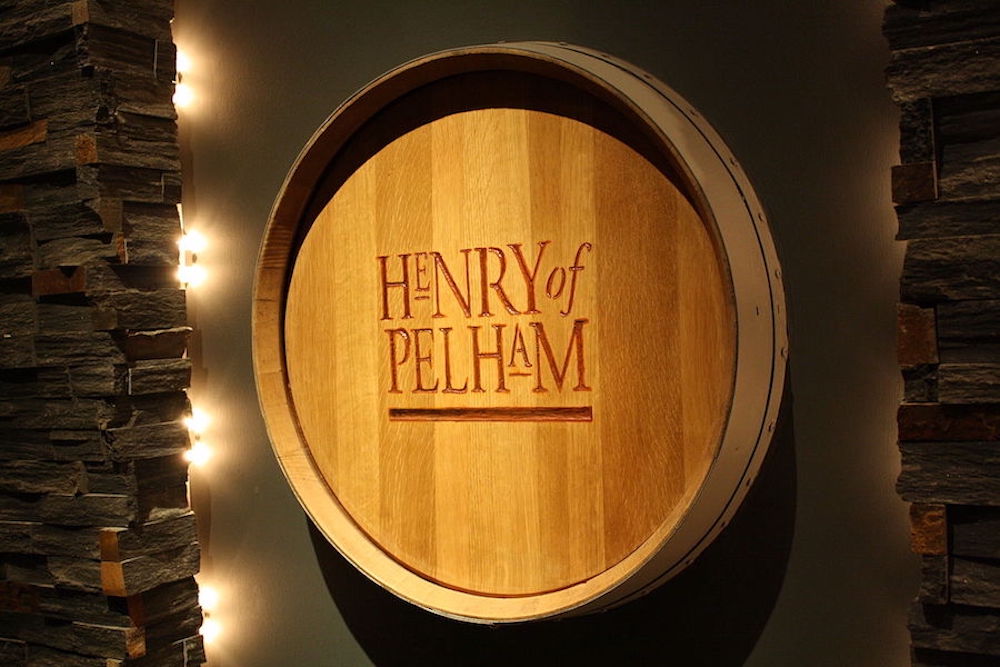
And that’s exactly what they have done over the last 36 years. In 1988, Paul Speck was appointed president of Henry of Pelham, the same year that the very first vintage of wine was produced. He went on to help to establish the Vintners Quality Alliance (VQA) with a handful of other Niagara wineries that same year. Matt Speck is vice-president of operations and Daniel Speck is vice-president of sales.
The three boys, who shovel planted practically the entire family vineyard on their own, divided the responsibilities between them, loosely determined by age, and built the winery and accompanying Family Wine Merchants, a wine, beer and spirits agency, into what it is today, a successful family wine business that produces well north of 150,000 cases of wine annually spread over several tiers and labels from the “classic” entry level to the super premium “Speck Family Reserve” wines.
From the very beginning, the Specks recognized that the path to success meant they needed robust representation at the LCBO, Ontario’s main retailer of wine in the province, and needed their wines on restaurant wine lists throughout Ontario and the rest of the country. And they have not stopped there; Henry of Pelham wines are now sold in nearly 20 countries.
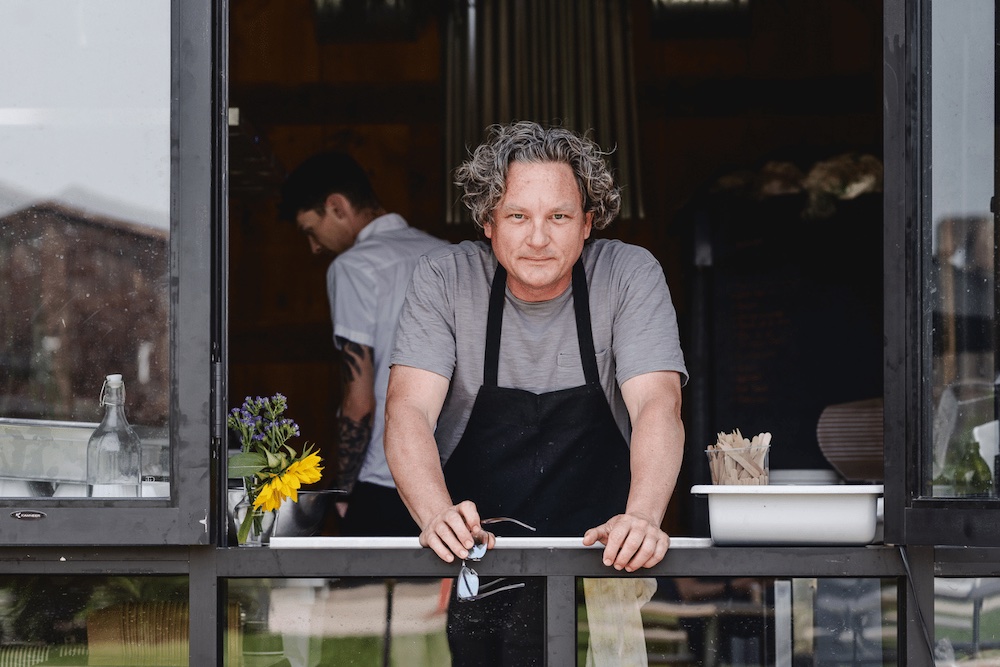
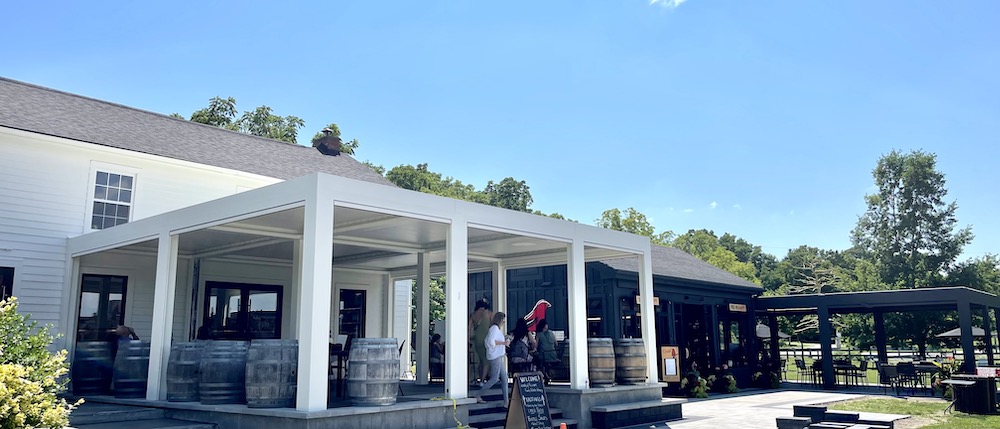
On this day, as we chat and taste on the new restaurant patio, with a menu created and prepared by Chef Erik Peacock (above), Paul Speck is fretting over the LCBO strike and all the wine Henry of Pelham wasn’t selling. Yes, online sales are up, in person visits are up, but nothing compares to the amount of wine the estate sells at the LCBO, which is 60% of all wine made there. As he told me, “I don’t care what the fight is over, I just want the LCBO open again.” He got his wish when the strike was called off and stores reopened on July 23.
The success the winery enjoys at the LCBO is rooted in the rich history of Henry of Pelham. “We tell stories,” he says. “We tell the story of who Henry was, the family, the brothers. We tell those stories and then the wines have to deliver.”
In case you are unaware of the many colourful stories, the Henry of Pelham Family Estate Winery was named after the brothers’ great-great-great grandpa’s son, Henry. “We think he had a pretty dry sense of humour, nicknaming himself ‘Henry of Pelham’ after a British prime minister.” He was an entrepreneur, building an inn and tavern on the property and operating a toll road. He also raised sheep and grew grapes — some of the first to be planted in Canada. The retail store and tasting room are where the inn used to be, and the restaurant is in the former Coach House.
Many of the labels on the wines made today feature some of the characters that are linked to the self-anointed Henry of Pelham.
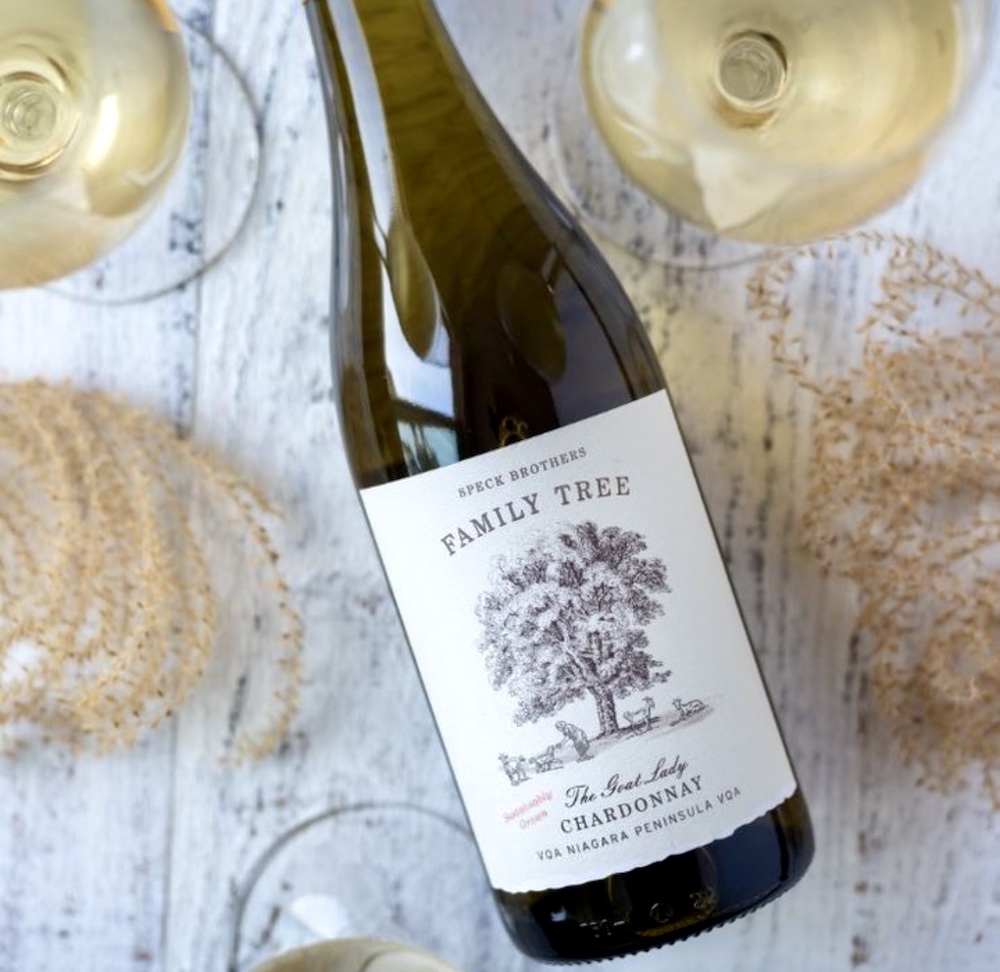
There’s the Family Tree “Goat Lady” Chardonnay named after Marion who kept goats next to the vineyard when the Speck brothers were children. Marion fed their dog Boswell warm bowls of fresh goats’ milk, and it didn’t take long for him to abandon them and move in with her.
There’s the Family Tree ‘Soldier’s Wife’ Sauvignon Blanc named after the family’s first known male ancestor in Canada who fought with the Butler’s Rangers during the American Rebellion and was both a bugle boy and a translator (being half Iroquois). Heroic as he was, his wife bore 14 children, which is why the winery honours her with this wine and not him.
And, of course, the Bin 106 ‘Lost Boys’ Limited Edition Baco Noir named after the three brothers who as teens, shovel-planted the grapes for this wine in 1984 in crooked rows that rolled with the land. This wine is named in homage to the summers the boys spent working on the farm.
There are others: ‘The Padré’ Cabernet-Merlot, ‘The Bootlegger’ Baco Noir, ‘The Boxer’s Ghost’ Pinot Noir and ‘Free Bird’ Riesling, with likely more characters to be immortalized in the future as the portfolio expands.
The robust collection of wines at Henry of Pelham is one of the most complete in Ontario. It champions the best of what Niagara grows across multiple tiers from Classic to the top Speck Family Reserve wines. The winemaker, Lawrence Buhler (who joined us for part of the tasting), presides over a very large and important catalogue of wines that continues to evolve as consumers’ tastes change. The constants are the Niagara classics — Chardonnay, Riesling (though not quite as popular as it once was), Cabernet-Merlot, a deep sparkling portfolio, and — are you ready for it? — Baco Noir.

“Long live the king of all grapes — Baco Noir,” wrote Paul Speck on a Wines in Niagara Facebook post recently about the meteoric rise of hybrid grapes in Ontario. “We planted it because we didn’t know what we were doing in 1984,” recalls Speck. When hybrids were facing extinction in the 1980s with a government-sponsored pullout of the much-maligned vines in favour of VQA grapes, the Speck brothers elected to hang on to their prolific planting as it was gaining a huge following.
From the first vintage in 1988, “everywhere I poured it, it sold. I said, ‘well, we have to keep making it because it sells.” By 1991 the winery’s Baco Noirs had a cult following, so much so that releases at Vintages — limited to six bottles per person — sold out immediately.
Baco Noir is renowned for its bold, ripe flavours. Primarily grown in North America, it is a hybrid grape variety with thick skins and a deep blue-black colour. It was created in the late 19th century by a French grape breeder named François Baco.
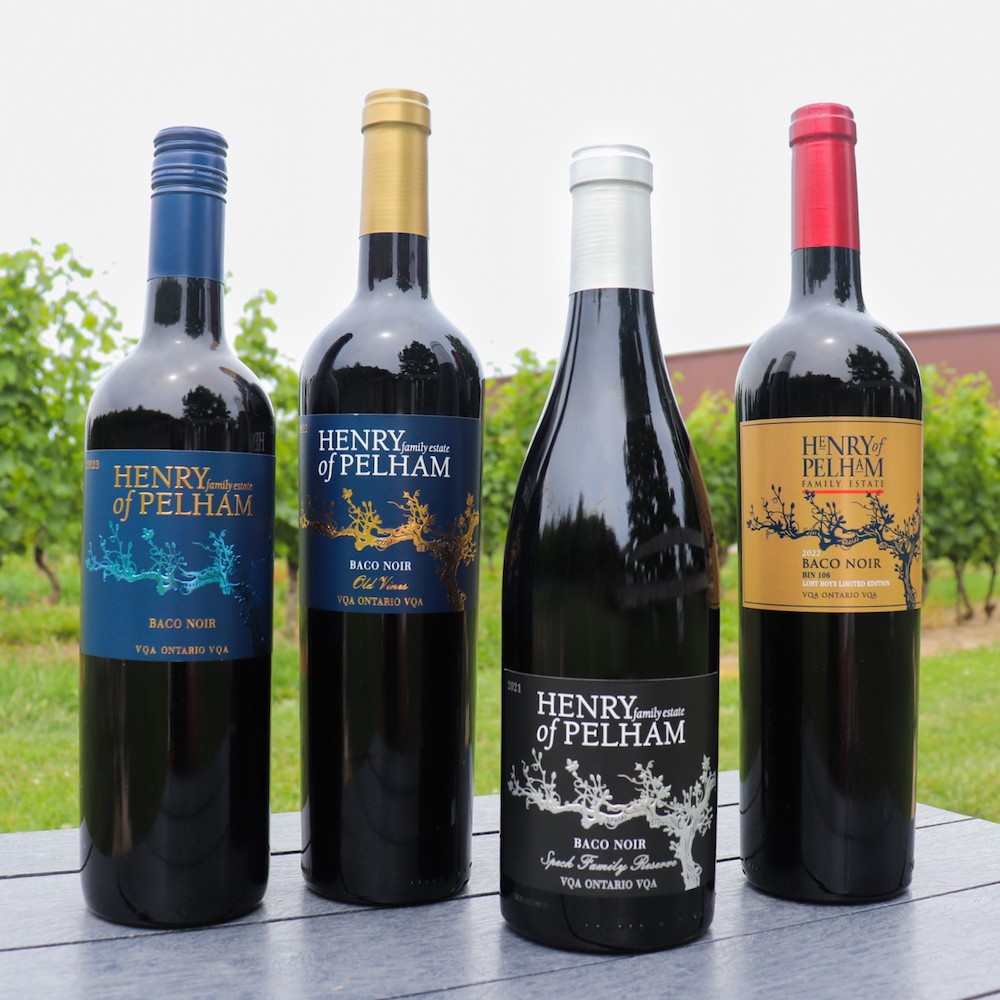
Speck says that Baco is “a low intervention grape, resistant to disease, and a vigorous variety that ripens early. It’s been an incredible variety for people who are starting to look for something a little different. Baco Noir fits right into that. When we’re pouring wines here or around the world, Baco Noir always gets the most attention because it’s something different, something unique.”
I ask Speck where it sits in the portfolio for popularity at LCBO stores and the winery. He tells me that the No. 1 selling Henry of Pelham wine at the LCBO is the Classic tier Baco Noir, which is sold at every store in the province. The No. 2 selling wine is the Old Vines Baco. And, you guessed it, the No. 1 wine sold at the winery is the same as above. When he repeats the words “Baco is the king of all grapes,” he says it with conviction and solid evidence. No winery in the country, perhaps the world, is more committed to Baco Noir than Henry of Pelham. “It has nice depth of flavour but also approachability. I think that’s what people like about it,” says Speck.
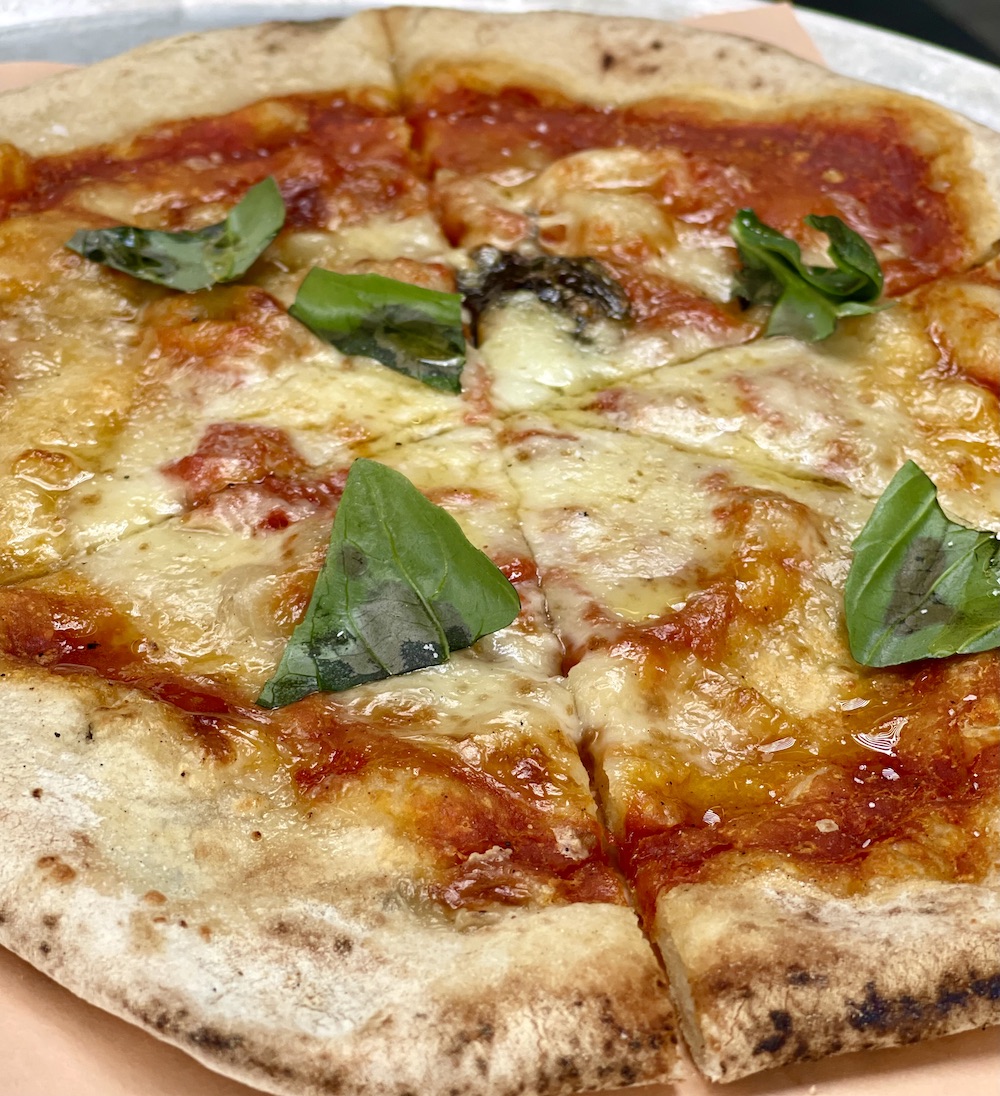
Speck opened an array of older vintage and new vintage wines during our whirlwind tasting (but ironically no Baco Noir) as we munched on several dishes on the patio of the Short Hills Kitchen run by Chef Peacock, who owns and runs the Wellington Court restaurant in St. Catharines. Served alongside our wines was a barrage of food, including the charcuterie plate with prosciutto, salami, sausage, antipasto and fresh cheese, a Margherita pizza (above), cold smoked trout with ancient grain salad, chimichurri and watermelon radish slaw, and the tuna ceviche with cucumber, ginger soy dressing and cilantro. It should be noted that Henry of Pelham has just completed a major renovation of the restaurant and tasting rooms, including much more outdoor patio space for your dining and tasting comfort.
Here’s what I liked from the tasting with Speck and Buhler:

Henry of Pelham Speck Family Reserve Riesling 2022 ($33, 94 points) — This top tier Riesling from HoP is always one of the best Rieslings made in Niagara from vintage to vintage. It’s from the estate’s Short Hills Bench vineyard, planted to the Weiss 21b clone in 1984. It has a beautiful nose of gushing lime, Meyer lemon, fresh salinity, wet stones, peaches, and apricots. It feels dry on the palate, despite over 10 g/L of RS, and shows fresh squeezed lime, grapefruit, peach tart, pears, chalky minerality, razor-sharp acidity and a bright, lifted finish. Can age through 2034.

Henry of Pelham The Dry River Riesling 2022 ($20, 91 points) — From fruit grown on the Short Hills Bench, this is a friendly Riesling with a bit more residual sugar than the top wine above. It bursts with grapefruit, lime, peaches and some tropical notes. There’s a bit of honey on the palate followed by ripe orchard fruits, zesty citrus and mouth-watering acidity on a vibrant finish.
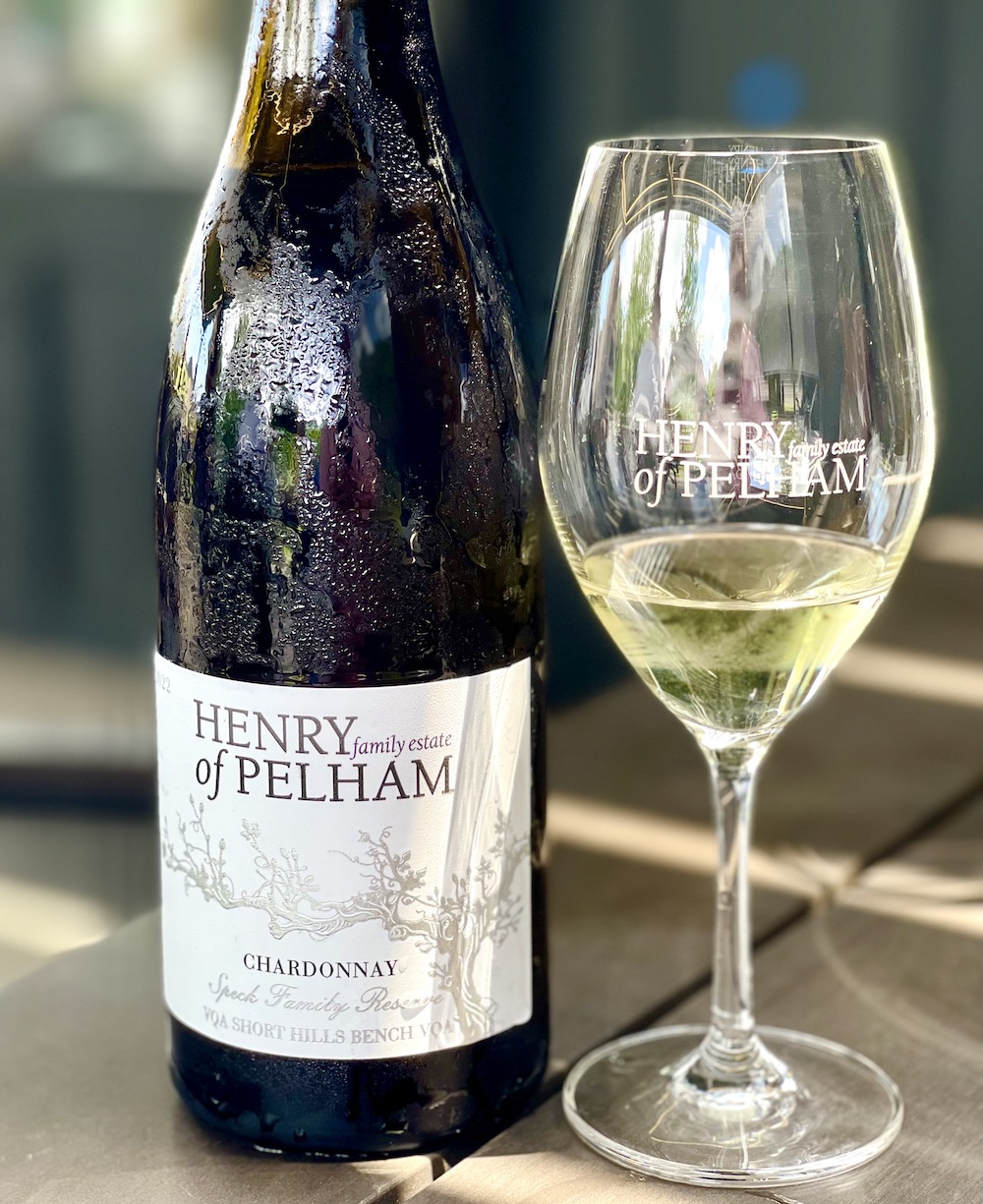
Henry of Pelham Speck Family Reserve Chardonnay 2022 ($35, 94 points) — This is sourced from the estate’s Short Hills Bench that was planted in 1988 to a field mix of clones planted in 1988. It’s barrel fermented in French oak with a portion in 3000L foudres and then barrel aged for 8-10 months, with a portion of that new oak. This is a rich and elegant expression of Niagara Chardonnay with a nose of ripe pear, yellow apples, lemon tart, caramel and spice that is persistent and expressive. It has a creamy, rounded texture on the palate with ripe orchard fruits, a vein of flinty minerality, lemony accents, and a long, purely elegant and finessed finish. Such a beautiful Chardonnay and now a few bottles are in my own cellar where I will patiently wait on all the moving parts to come into perfect harmony. You can cellar to 2028.
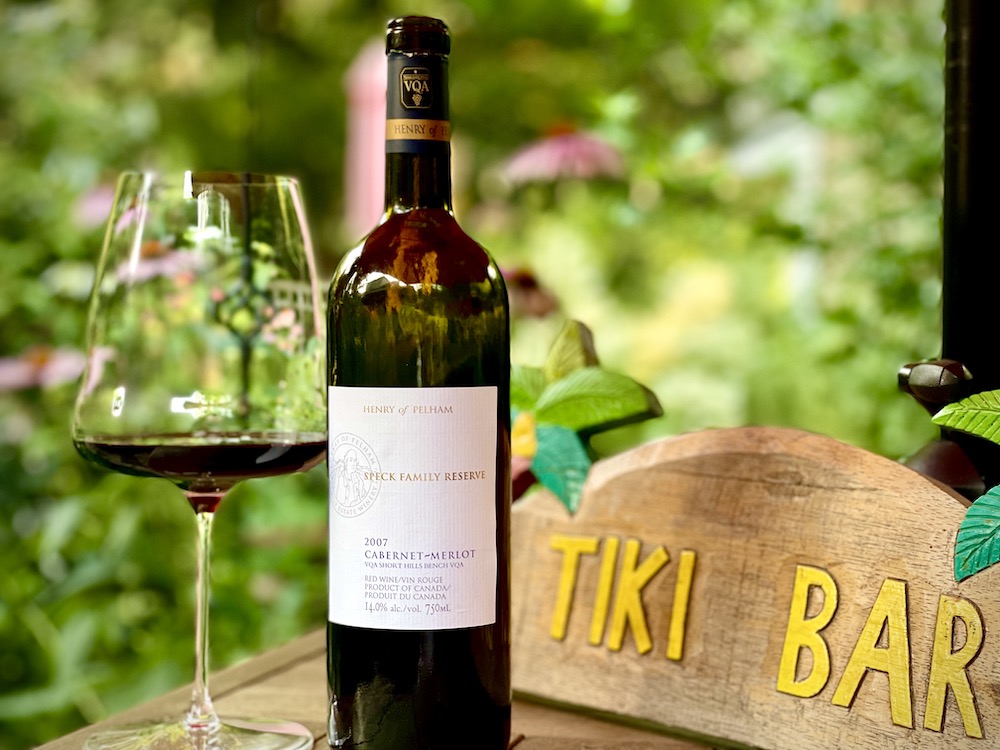
Henry of Pelham Speck Family Reserve Cabernet-Merlot 2007 ($50 was the original price but not available now, 95 points) — This blockbuster red blend was a stunner on release and has surpassed that with age in the cellar. It’s a blend of Cabernet Sauvignon, Merlot and Cabernet Franc that was aged (I believe) in French oak barrels for 18 months. It mirrors the Bordeaux style especially as it ages so gracefully over time. Honestly, this shocked me as I tasted it with Speck and later at home. It was so tight when released but now benefits from a shockingly beautiful array of rich and juicy dark cherries, blackberries, cassis, rich spice notes, mocha, a touch of earth and toasted vanilla. The palate reveals soft, resolved tannins, a velvety texture, a melange of super-ripe dark and red berries, earthy savoury notes, toasty spices, dark chocolate and a long, long finish that echoes for minutes. What a beautiful wine this has turned into and a perfect example of why you should always tuck a few Niagara red blends away in your cellar and forget about them for 10 years or more, especially wines from the warmer vintages.
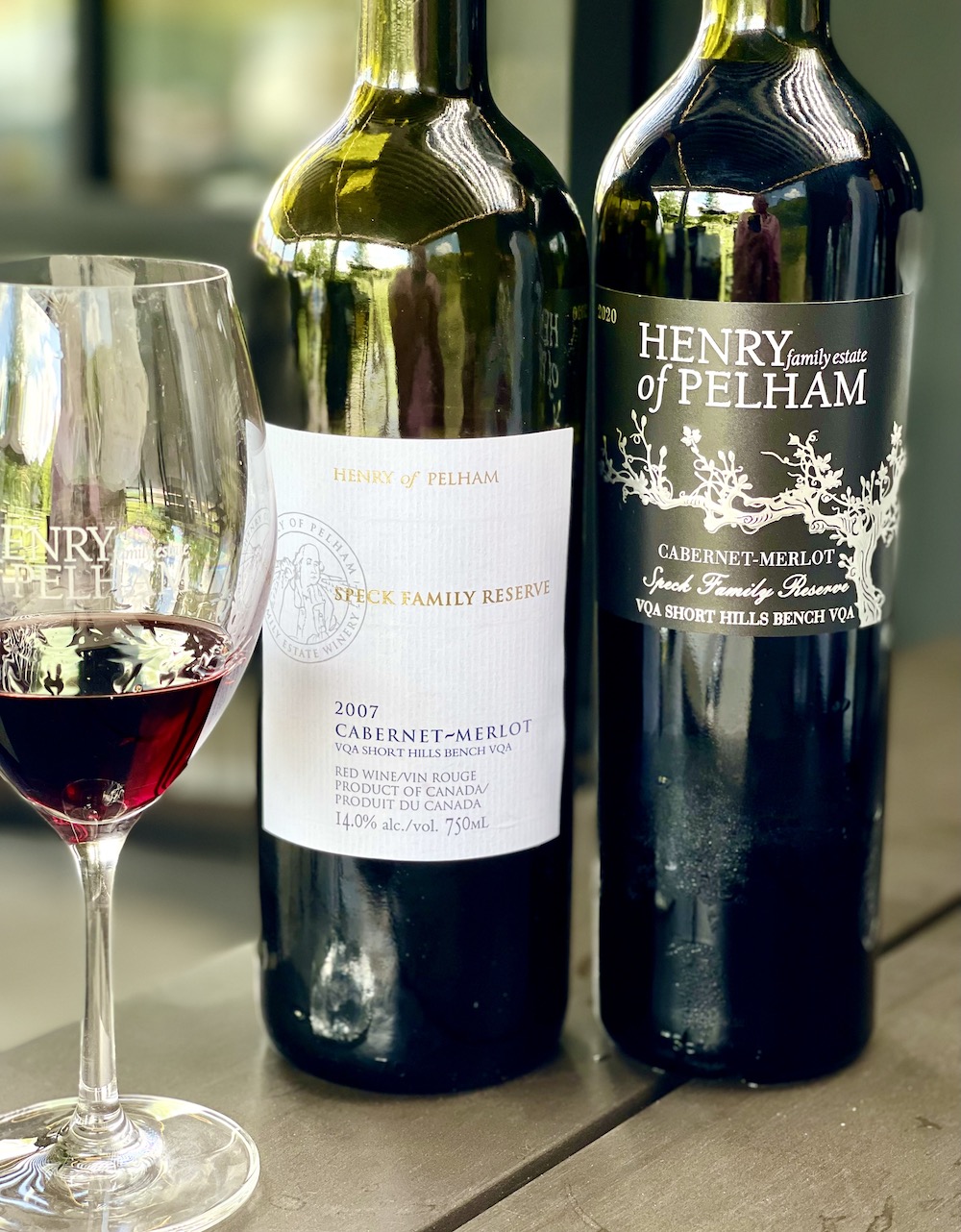
Henry of Pelham Speck Family Reserve Cabernet-Reserve 2020 ($48, 94 points) — In many ways, the 2020 version echoes the 2007 vintage, which were both near perfect, warm vintages in Niagara. The wine was aged in French and American oak barrels, 40% new, for 18 months. What a beautiful, full-bodied red from the 2020 vintage. It has an inviting, expressive nose of black raspberries, dark cherries, ripe plums, cocoa, cassis, and cedary/perfume notes with rich spice box accents. It’s dense and juicy on the palate with a firm tannic backbone that displays an array of mature red berries, blackberry preserves, anise, smoky cedar plank, mulled herbs and toasty spices that are all carried through the long, finessed finish. This is still evolving and cellaring is recommended. It will keep improving through 2039, if the 2007 is any indication. Buy, hold and be blown away!
Other Henry of Pelham wines tasted recently:
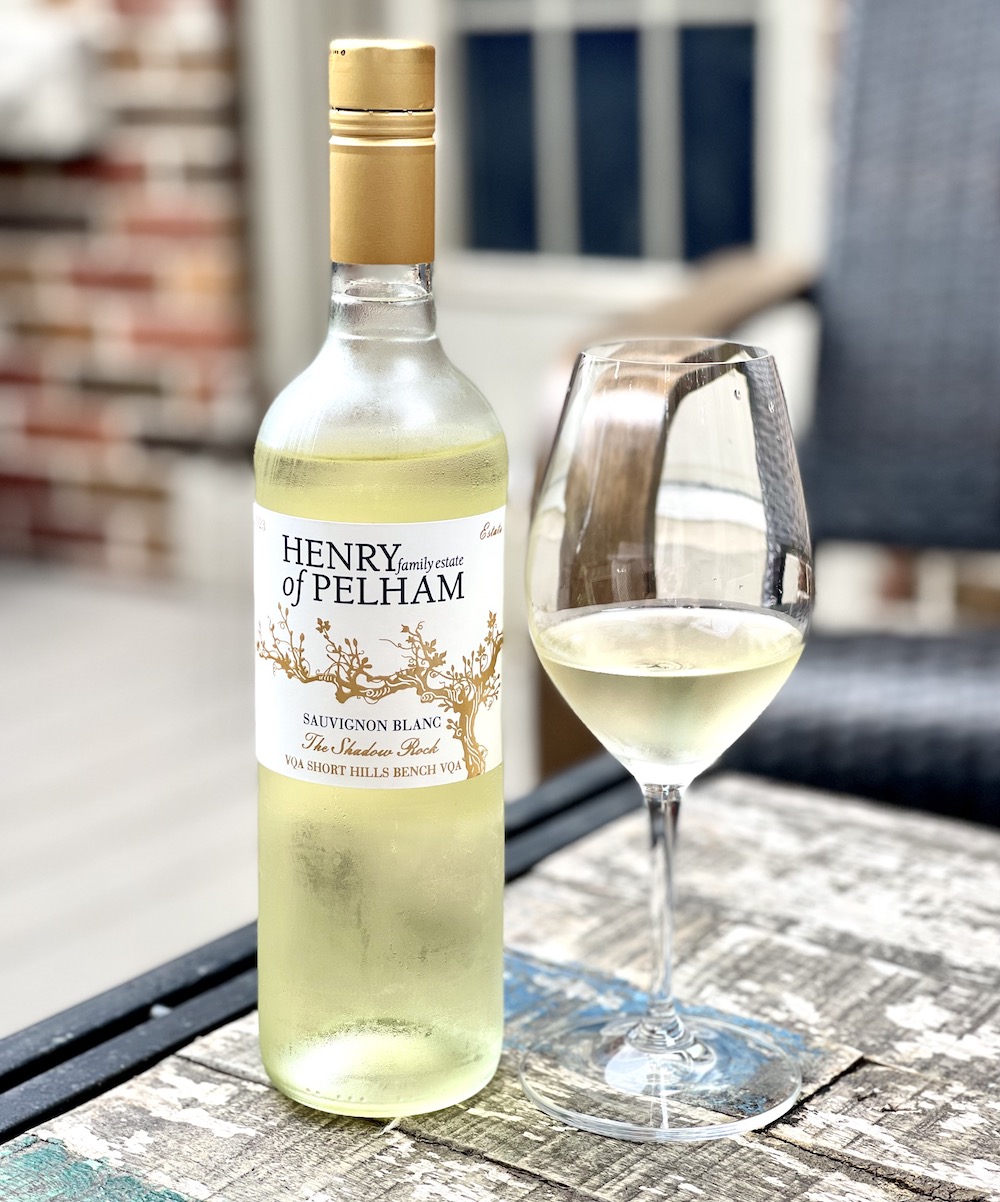
Henry of Pelham The Shadow Rock Sauvignon Blanc 2023 ($22, 90 points) — Henry of Pelham tends to let this atypical cool climate friendly variety hang a bit longer in the vineyard to achieve a riper profile and less of those grassy/thiol qualities found in New Zealand. This teems with grapefruit, pear, melon and some spice notes from light oak aging. It has a creamy texture and weight on the palate with ripe pear, kiwi, grapefruit, integrated spice notes and vanilla on a lifted, vibrant finish.
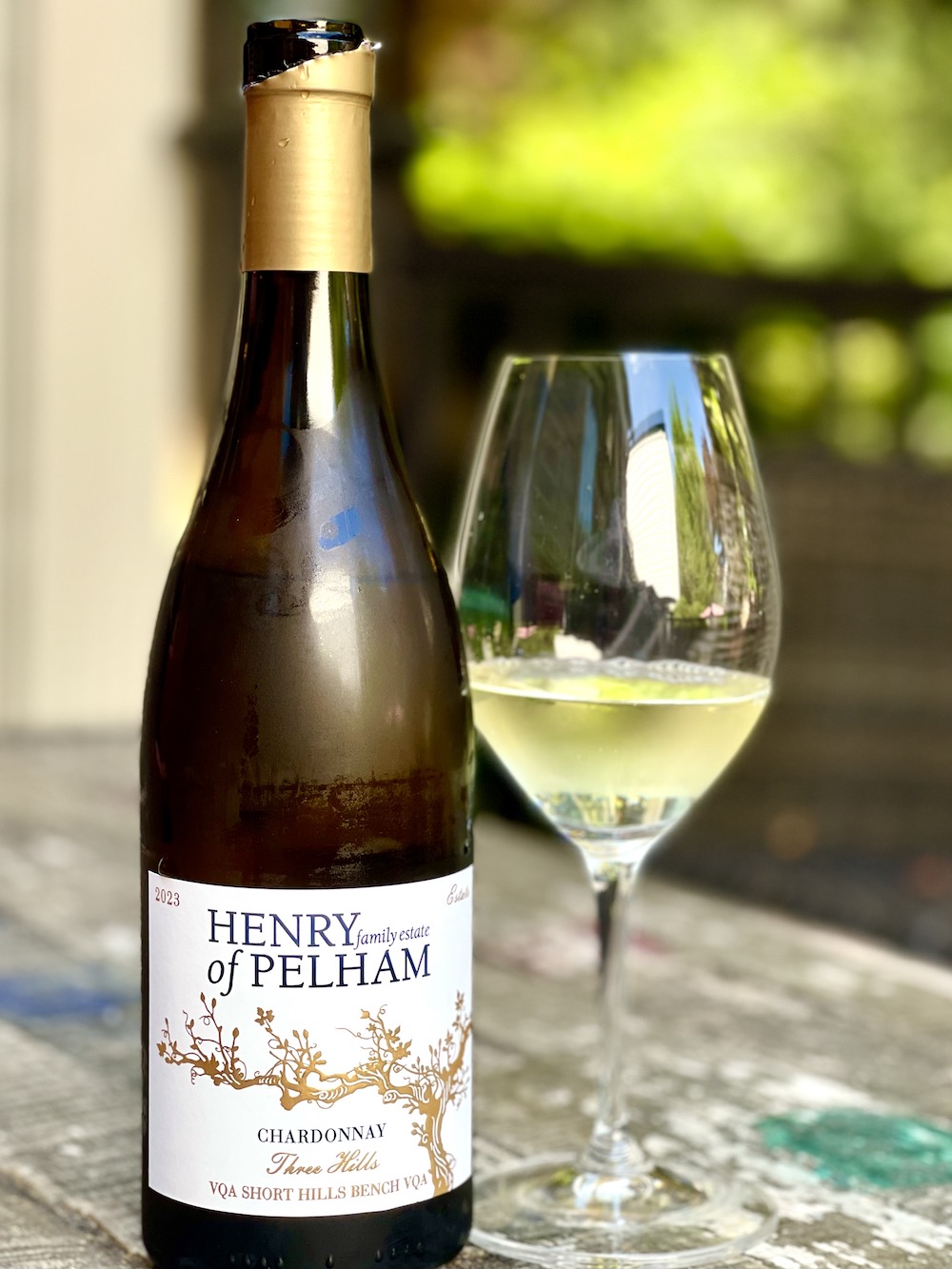
Henry of Pelham Three Hills Chardonnay 2023 ($20, 91 points) — This estate Chardo is aged in both French oak barriques and foudres for eight months. It has a saline nose of pear, yellow apple, white peach, lemon zest and light toasty spice notes. It is generous on the palate with ripe orchard fruits, a creamy texture, lemon tart, spices and energy through the lifted finish.
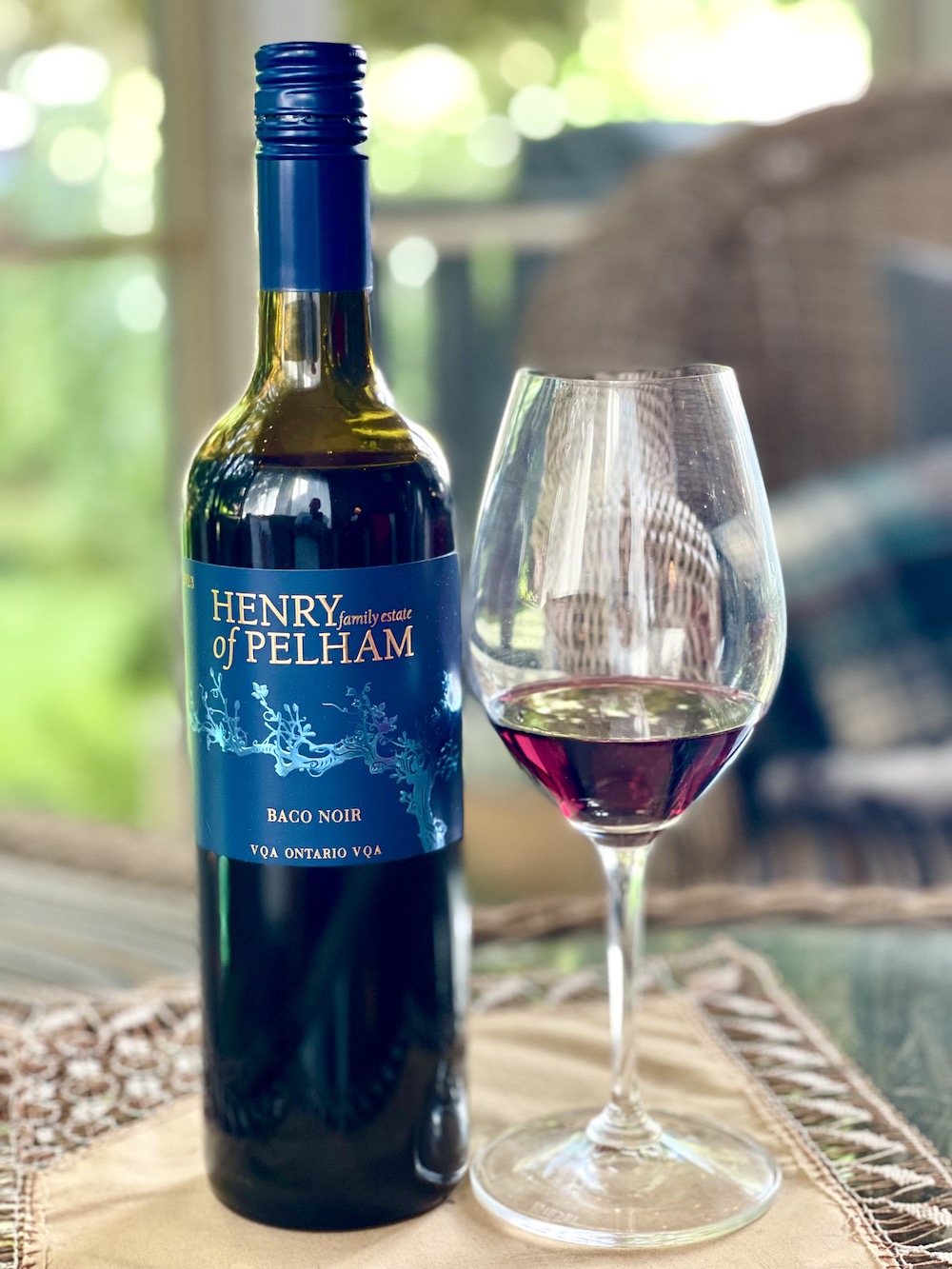
Henry of Pelham Baco Noir 2023 ($17, 89 points) — This entry level “Classic” tier Baco Noir is sourced from a range of vineyards, the oldest dating back to 1975 and the youngest 2015. It’s aged in American oak for six months. It shows a deep red velvet colour in the glass and a nose of maraschino cherries, black raspberries, ripe strawberries, floral notes, black currant jam, a touch of pepper and toasted spice notes. It’s bold and sassy on the palate with thick, rich cherries, crème de cassis, black currants, tame tannins, subtle peppery notes, elevated savoury spices and tell-tale juicy acidity driving the back end.


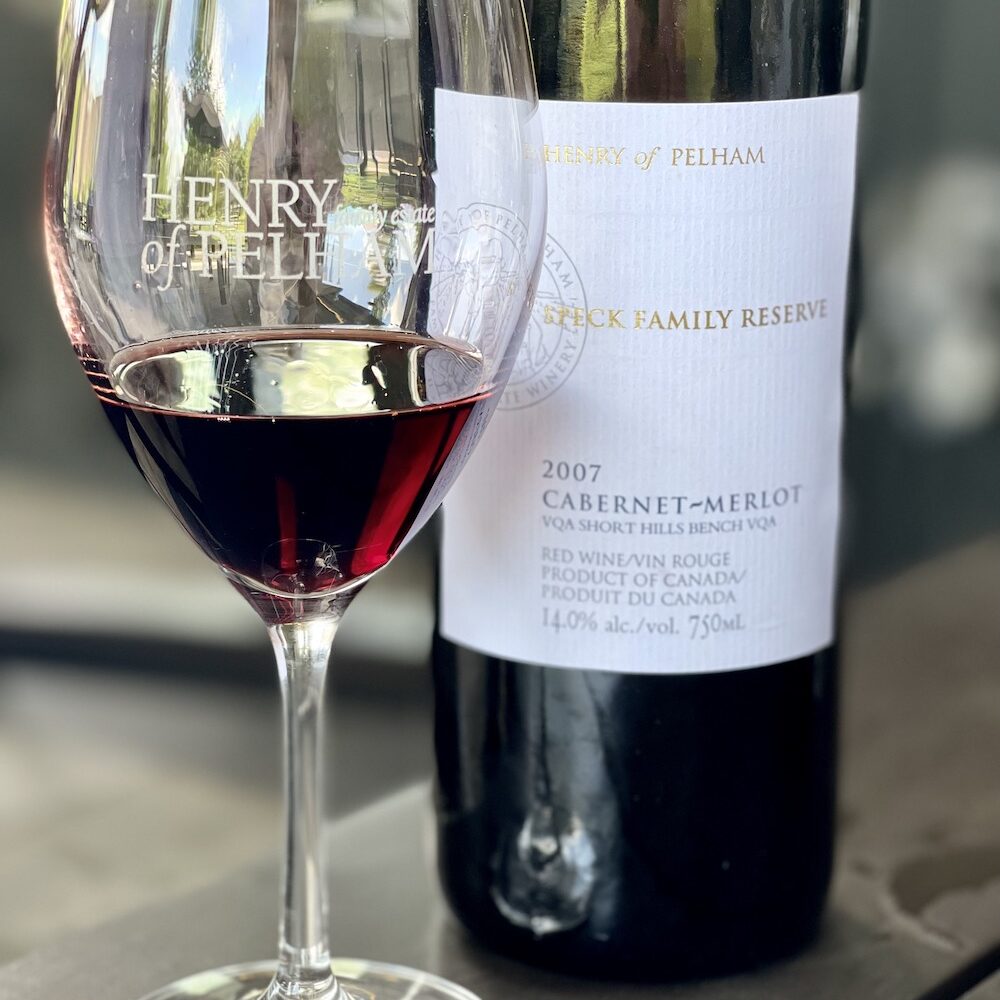




Comment here